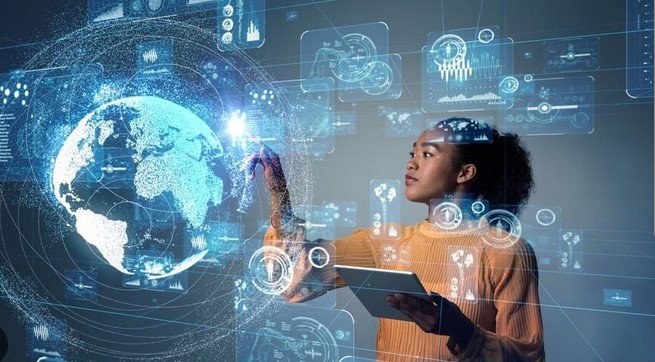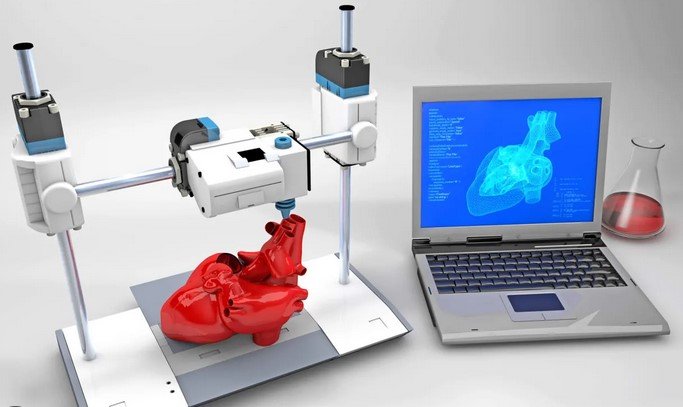Technology has become deeply integrated into our daily lives, influencing nearly every aspect of how we live, work, and communicate. From the way we interact with others to how we manage our health and conduct business, technology has revolutionized the way we experience the world. In this post, we will explore how technology shapes modern life and its impact on various areas of society.

1. Transforming Communication
One of the most significant ways technology shapes modern life is through communication. The advent of the internet, smartphones, and social media platforms has made it easier than ever to connect with people across the globe. Whether it’s through instant messaging, video calls, or social networking, technology has erased the boundaries of physical distance.
Social media has particularly transformed the way we interact, allowing individuals to share their thoughts, experiences, and ideas with a vast audience. This shift has also impacted businesses, as brands now interact with customers directly through platforms like Twitter, Facebook, and Instagram, enhancing customer engagement and providing immediate feedback.
2. Revolutionizing Work and Education
Technology has revolutionized both work and education, creating new opportunities and challenges. In the workplace, tools like cloud computing, collaboration software, and artificial intelligence (AI) have streamlined tasks and improved efficiency. Employees can now work remotely, communicate seamlessly with colleagues, and access necessary files and resources from anywhere.
Similarly, in education, technology has transformed traditional learning methods. Online courses, virtual classrooms, and digital textbooks have made education more accessible to people worldwide. E-learning platforms like Coursera and Khan Academy have democratized knowledge, allowing individuals to pursue lifelong learning without geographical limitations.
3. Advancing Healthcare
Technology has also played a crucial role in advancing healthcare. Medical technologies, such as diagnostic imaging, robotic surgery, and telemedicine, have revolutionized the way healthcare is delivered. Patients can now receive consultations remotely, which is especially important in rural or underserved areas. Furthermore, wearable devices like smartwatches and fitness trackers enable individuals to monitor their health in real-time, promoting preventive care and better management of chronic conditions.
In addition, AI and machine learning are being used to analyze medical data and develop more accurate diagnoses, enhancing the overall quality of care. Technology in healthcare is not only improving patient outcomes but also helping to reduce costs and increase access to care for people around the world.
4. Shaping Entertainment and Leisure
The entertainment industry has also been dramatically shaped by technology. Streaming services like Netflix, Spotify, and YouTube have changed how we consume media, offering instant access to a wide variety of content at the touch of a button. Video games have evolved with advanced graphics and immersive experiences, creating virtual worlds that captivate millions.
Virtual reality (VR) and augmented reality (AR) are pushing the boundaries of entertainment even further, offering immersive experiences in gaming, movies, and online events. These innovations have transformed entertainment into a more interactive and engaging experience, allowing users to step into entirely new environments and narratives.
5. Enhancing Convenience in Daily Life
Finally, technology has made everyday life more convenient. Smart devices like voice assistants, smart thermostats, and home security systems have simplified household tasks, allowing people to manage their homes with greater ease. Online shopping and digital payments have made purchasing goods and services faster and more efficient, reducing the need for physical stores and cash transactions.
Moreover, technology has reshaped transportation. Ride-sharing services like Uber and Lyft, as well as advancements in autonomous vehicles, have transformed how we travel. Navigation apps like Google Maps provide real-time traffic updates, helping people reach their destinations faster and more efficiently.
Conclusion
Technology has profoundly shaped modern life, influencing everything from communication and education to healthcare, entertainment, and daily convenience. While it brings new challenges, such as concerns over privacy and dependency, the benefits of technological advancements cannot be ignored. As we continue to embrace new innovations, it’s clear that technology will keep shaping our world in ways we can only begin to imagine.




